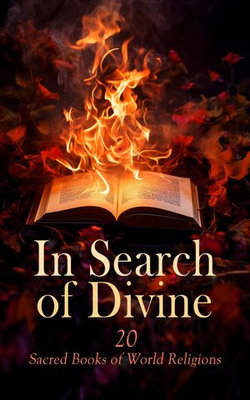In Search of Divine: 20 Sacred Books of World Religions is an exceptional anthology that encapsulates the profound and diverse spiritual heritage of humanity. This collection spans millennia, from the epic tales of Homer's Iliad to the mystical verses of Rumi, offering a rich tapestry of literary styles and theological insights. It explores a myriad of themes including creation, morality, metaphysics, and the human quest for meaning. The editorial curation brings forth a coherent narrative that provides a comprehensive overview of the world's most influential sacred texts, each piece holding significance in its right and collectively creating an overarching dialogue about the divine and the human condition. Standout selections such as the Gospel of John and the Bhagavad Gita are presented to illustrate the universal quest for understanding the divine. The contributing authors of this anthology are luminaries whose works have profoundly shaped religious thought and literary traditions across cultures and epochs. From the ancient wisdom of Hesiod and the philosophical musings of Confucius and Laozi, to the revelatory statements of the Prophet Muhammad and Joseph Smith, and the esoteric teachings of Helena Blavatsky, each author brings a unique perspective and authoritative voice. This collection aligns with significant historical, cultural, and literary movements, from the axial age reflections to the emergence of modern spiritualism. The voices within this volume resonate with the universal human pursuit of spiritual connection and enlightenment, enriching the reader's understanding through their distinctive yet harmonized contributions. In Search of Divine is an indispensable tome for readers seeking an expansive and inclusive exploration of spiritual literature. It offers an unparalleled opportunity to traverse a vast array of religious landscapes within a single volume, making it an invaluable resource for scholars, students, and spiritual seekers alike. This anthology deftly illuminates the multifaceted dialogue between diverse religious traditions and their sacred writings, fostering a deeper appreciation and critical reflection on the paths humanity has taken in its search for the divine. Engaging with this collection promises a transformative journey through the profound and varied expressions of human spirituality.



Share This eBook: